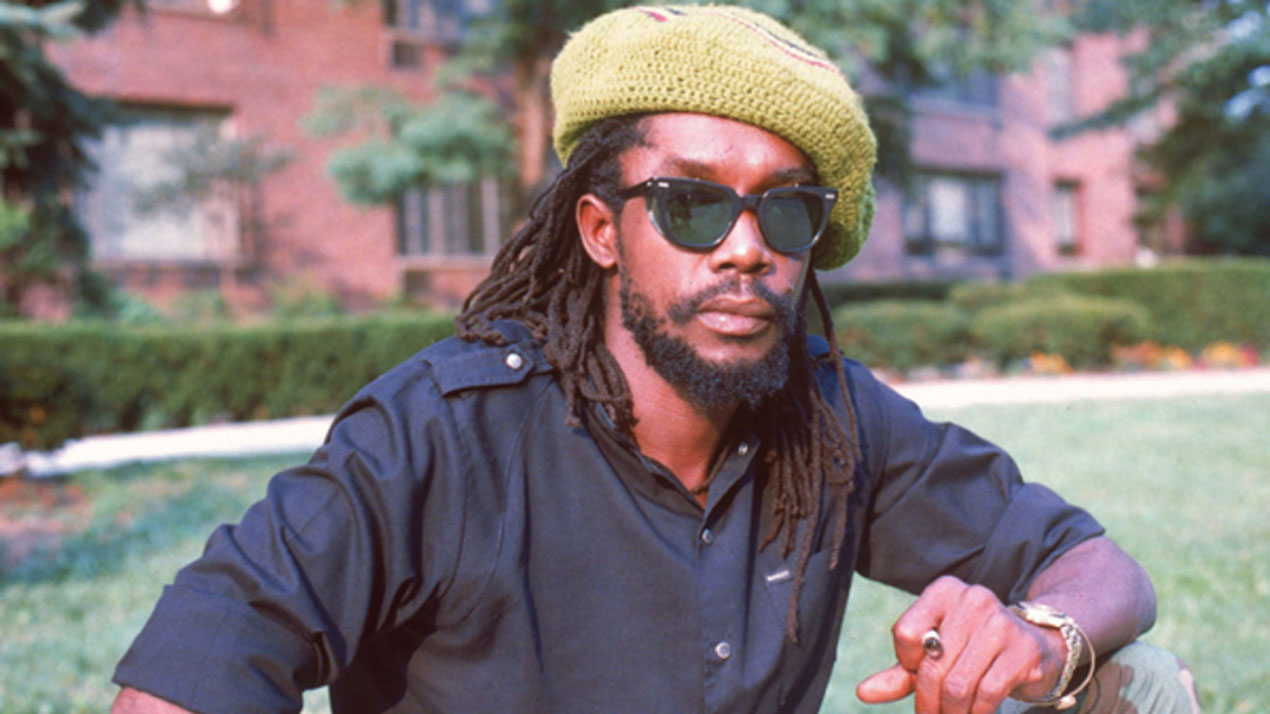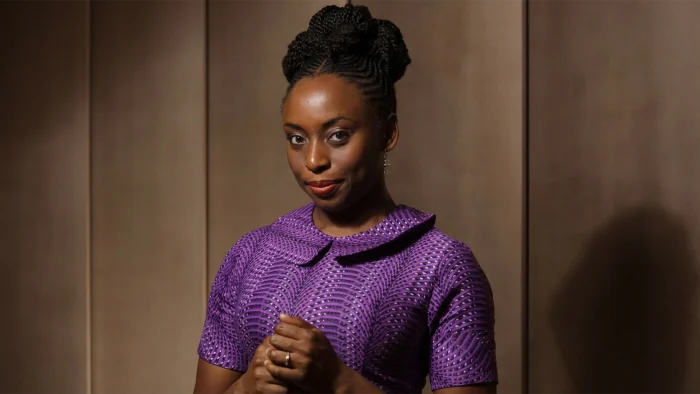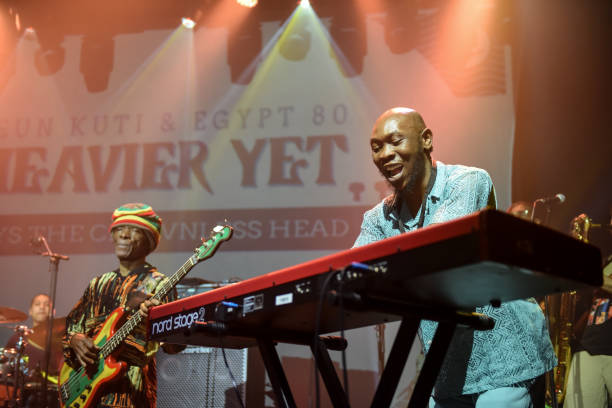
This weekend, exactly 30 years ago, reggae music and indeed the world, lost iconic maestro, poet, philosopher and a staunch defender of African rights, Winston Hubert MclnTosh, popularly known as Peter Tosh. Three gunmen, led by Dennis “Leppo” Lobban, one of Tosh’s ‘boys’ whom he sustained as part of the communal Rastafarian injunction of brotherly co-existence, had stormed his house at Barbican Road residence, St Andrew, Jamaica at about 7.30pm on this day. Within a twinkle of an eye, the gunmen had put a full stop to the 42-years of existence of a man who, with two others, Robert Nesta Marley and Neville O’Riley (Bunny Livingston), pioneered what is today a genre of music called reggae, ensuring its mutation from ska music.
Tosh had, on September 11, 1987 just returned to Jamaica from a US business trip and was relaxing by watching a TV satellite show at home with his common law live-in-lover, Marlene Brown when the gunmen struck. The Jamaican court was to later rule that the attackers were on an armed robbery expedition. Two others were killed in that encounter, namely famous Rastafarian broadcaster and disc jockey with the defunct Jamaican Broadcasting Service, Jeff Dixon, also known as Free I and one other visitor to the house named Wilton Brown. Free I’s wife, co-guests Michael Robinson and Santa Davis, survived but Tosh’s wife had a bullet lodged in her skull. At first, talks were rife that Marley’s wife, Rita who controlled his estate, had a hand in Tosh’s murder as the original Wailing Wailers friends of Marley made a legal claim to his multi-million dollar Tuff Gong studio on Hope Street in Kingston. This was exacerbated by interviews granted by the lone survivor of the triumvirate, Bunny who accused Rita of being a Jezebel and that Peter was actually sleeping with her while married to Bob.
The story of Leppo’s strike was shrouded in mystery. He was one of Tosh’s “brethren” whom he fed and who knew the geography of the house. For instance, Lobba n visit ed Tosh’s Barbican Road residence regularly and had become familiar with the trained dogs who provided security therein. So it was not difficult to disarm them on the day of his strike. While he held the gun, he had asked them all in the living room, including Tosh to “belly it” ( lie face down ) turning his anger at Marlene, even as he asked Tosh for American dollars. He angrily accused Tosh of “ giving his woman authority over we” stating that Marlene, was responsible for Tosh’s inability “to maintain we . “ He had earlier asked the two other assailants to disarm Tosh as he was “a black belt” and later shot Tosh himself on the forehead, After the assailants’ attack, upon being rushed to the hospital, Tosh gave up the ghost that night. The talk in town was that Leppo, who had recently been released from prison, had bit the bullet for Tosh in a criminal case and had gone to prison in Tosh’s stead. He could thus not stomach while Tosh shouldn’t take good care of him.
[ad]
For years, many people did not identify the raw talent and artistic bravura combined in the works of the 6.4 feet dreadlocked singer. This was due to his perceived arrogance and diffidence. For instance, immediately Bob died, Tosh had shocked the world in an interview where he claimed that Bob had peaked while he was decorating the stage. The truth is, Tosh was too assertive, too hot to handle and never hid his disdain for what he called Babylonian lifestyle of hedonism. Tosh believed in marrying words with action. Towards the latter part of his life, he cut a queer image of a revolutionary ready to carry arms. With his imposing height as he adorned a black beret, with a guitar that had the shape of an M16 assault rifle, Tosh didn’t mince words in projecting the narrative that he was a musical militant. He told those who underrated him that he was “like you are steppin’ razor” and asked, “don’t you watch my size” as “I am dangerous!” In comparison to others, Tosh said, “I’m the Toughest,” an apparent reference to the trained karate belt holder that he was. He was once asked by an interviewer why he never smiled and he said that since he sang revolutionary song, which was not love song, nor a tea party, he saw no reason to smile.
That militant disposition and theme of repelling those who mocked the Rastafari religion, he addressed in Recruiting Soldiers where he sang that he was recruiting soldiers “for Jah army” because “Jah time is now” and “Satan’s forces all rise up to fight.. Jah and the saints… fighting against Jah children… slaughter(ing) them light slaves… and say(ing) Jah is dead, But they didn’t show me his grave.”
Tosh was a great campaigner against apartheid and was unrepentantly African in his advocacy. In African, he had sang, “Don’t care where you come from, as long as you’re a black man, you’re an African.” To show how he abhorred the apartheid system, Tosh rejected offers to play in South Africa but accepted same offer to sing in neighbouring Swaziland. He also had an anti-Semitic disposition and was a staunch supporter of the call for a Palestinian homeland. Way back in 1979, he had started turning down offers to perform in Israel because of this. At the later part of his life, Tosh walked up the stage with his usual insignia of a ganja spliff clutched in his left fingers and adorning Palestinian dress.
He was a strict Rastafarian, obeying its injunctions of not mixing with menstruating women, observing its strict dietary prescriptions and believed in doing good to his fellow man. In the early 90s when he visited Nigeria and stayed at late Sonny Okosun’s country home in Irrua, defunct Bendel State, Tosh was always dashing down to Lagos to purchase his Rasta food at defunct Leventis shop and claimed that the Nigerian hemp was more powerful than his native Jamaica’s. That Nigerian visit produced Mama Africa where he lauded Africa that he was visiting for the very first time. It was also a lost opportunity for Tosh to meet Fela Anikulapo Kuti. He had reportedly gone to Fela’s Shrine to pay him a visit but was told that Abami Eda was observing his siesta. “Tell him it’s Peter Tosh,” he had told the person he met. Apparently not knowing who Tosh was, the man gave the message little push and Tosh left.
Tosh was highly spiritual. Apart from pursuing a path of goodness to his fellow man, his lyrics are laced with biblical quotations. Of the three original Wailers, though he didn’t have much education, he was the most cerebral. He could chant endlessly, quoting biblical verses with baffling mastery. The Mystic Man was perhaps the avenue Tosh used to showcase his spirituality the most. He had proclaimed his mysticism in that he doesn’t “drink no champagne…I don’t sniff them cocaine (as it) choke(s) brain… I don’t take morphine (dangerous)…I don’t take no heroin… I man don’t eat up your fried chicken…I man don’t eat up them frankfurters…I man don’t eat down the hamburger…I man don’t drink pink, blue, yellow, green soda” and the reason, he said, was because he was “a man of the past, living in the present and walking in the future.”
Like a devoted Rastaman that he was, Tosh never joked with meditations and reading of the scriptures. In Blessed be the man, he quoted copiously from the bible, calling Jah, “Kings of kings, lords of lords Conquering lion of the tribe of Judah, Elect of God, mighty God, Ever living God, earth’s rightful ruler.” In the same vinyl, he lauded as blessed the man “that walk’eth not In the counsel of the ungodly, nor stand’eth in the ways of sinners, nor sitt’eth in the seat of the scornful, for I delight is in the law of the lord God, Selassie I, In his laws do I meditate day and night, therefore I must be like a tree planted by the rivers of water and bring’eth forth fruit in due season I locks also shall not wither and whatsoever I do’eth shall prosper.”
[ad]
Born October 19, 1944 in Westmoreland, Jamaica, his parents, too young to raise him, gave him up to his aunt in Grange Hill. He manifested precocious talent of singing at childhood and in the early 1960s, he migrated from the country to the slum of Kingston called Trench Town where he was hawking sugarcane juice in a cart. He spiced it up with twanging at a guitar he stole from his mother’s church which caught the attention of the duo of Robert and Neville O’Rilley (Bunny). With the help of music teacher, Joe Higgs, they honed their musical skills and decided, in 1962 to form a band which they named The Wailing Wailers. Indeed, Peter taught the duo how to play the guitar and when they all went their ways in 1974, partly due to Island Records’ Chris Blackwell’s preference for mulatto Bob ahead of others, Peter had lamented that he “taught him how to play guitar and now they say he’s king of reggae.”
In their a little more than a decade of being together, The Wailers became a huge commercial success. The New York Times referred to them as “the most popular and admired of all reggae groups” and the band sold more than 250 million albums worldwide.
Upon their separation in 1973, each went solo. Tosh’s first major hit thereafter was an atavistic album he called Legalize It released in 1976 with CBS Records. It uncompromisingly sang the praises of the banned narcotic called Indian hemp, lauding its alleged health benefits. The album sleeve of the vinyl had him smoking the marijuana chalice pipe in a countryside hemp plantation. In 1974, Tosh released Equal Rights where he deplored racism against blacks, sounding diffident about his liberation philosophy. He was extremely controversial and did not care whose ox was gored. This probably dictated his highly burnished speech at 1978 One Love Concert which had him, Bob and other Jamaican musicians on stage. Prime Minister Michael Manley and Edward Seaga, Leader of the Opposition, two politicians on whose behalf politicians inflicted one of the hottest political battles ever witnessed on Jamaica, tearing apart the tiny island with horrendous political fissures, were also there. There, Tosh had told the 40-000-strong audience that he was not a man of peace as “peace” was “the diploma you get in the cemetery” because on the tombstone, it is written, “Rest in Peace!” To Manley and Seaga, he thundered in his bassy voice, apparently encrusted by heavy ganja he smoked anywhere, unabashedly: “Hungry people are angry people.” His memorable words landed with a thud because earlier at the concert, he had ordered camera journalists whom he labelled “lickle pirates from America… wid dem camera and dem TV business” to cease filming him and rather than him, his erstwhile friend and now sworn enemy, Bob stole the show as he asked Manley and Seaga out on the stage, ordering them to clasp their hands in “one love” and squeezed a promise from the politicians not to turn Jamaica into a political war zone.
[ad]
Barely five months after the Peace Concert, Tosh was arrested by the police. He was mercilessly beaten and in the process, his skull was cracked and only stayed alive by feigning that he had been murdered. This probably explains the recurrence of brutality of Babylon (the police) in his songs. In his Na go a jail, he banalized the criminalization of hemp smoking and made a mockery of the system which relentlessly hounded the weed smoker. “This here smoke that you see me with sir, I just got it from an officer; And this here little bit of green Sensimilla, I just got it from an Inspector, He’s my friend… I hear one leader say, If it wasn’t for the little Sensi, Him no know what happen to the economy; I see another leader, Go in a Half Way Tree, And he set them ganja prisoners free…” he sang, stating that even the priest smoked marijuana.
In Arise black man, Tosh conjured the Socratic credo of “Man, know thyself.” It was one of the strongest messages from any musician, aside Marley’s adaptation of Emperor Haille Selassie’s speech at the OAU in 1978 into a song he entitled War, which attempted to rouse blacks from their mental slavery and dependency on the west. In it, as usual, Tosh spelled the need for the black race to unite and fight for equal rights. Deploying violent imagery, Tosh also predicted that the end of mental slavery was near and attacked those who didn’t see this, stating that “heaven becomes your grave.”
Tosh was what could be regarded as a linguistic gymnast and a poet. In his songs, you would encounter raw poetry, with alliterations and virtually all the figures of speech. The word “oppressor” Tosh called “downpressor,” imputing that those who committed such a heinous crime of oppression against blacks should not be dignified with any lifting up. The manager, to him, was the ‘damager’, the judge, a ‘grudge’, the system was ‘shit-stem’ and the Prime Minister, the ‘Crime Minister’ who ‘shits’ (sits) in the ‘House of Represent-a-t’iefs’.” Christopher Columbus was Christopher ‘Combulus’ and Alexander the Great was, “Alexander So Called The Great.” In one of his vinyl he entitled Here comes the judge, just like in Downpressor man, Tosh demonstrated how, on the last day, in the presence of “The Most High Jah,” oppressors of blacks on earth would face the wrath of providence, running to the rocks “but the rocks will be melting.”
In Get up, stand up, a song which the trio of erstwhile Wailers had sang individually, they made mockery of Christian and Islamic religion, in their transference of succor for man to an unseen creator. The song asked man to seek redemption here on earth and proclaim that man was tired of the ism and schism of dying and going to heaven in Jesus name because the mighty God is a living man, a reference to Selassie whom Rastafarians worship as God. Tosh’s own version of the song, which though wasn’t as high-tempoed and popular as Bob’s, is however unique for the introduction of a slow tempo into it. Same theme was also in Coming in Hot where Tosh demonstrated the fieriness of his song. Like the gun guitar image of a tough militant that he created, the lyrics of this song compared the ferociousness of the Tosh brand to a gunshot or explosives.
But at some point, it would appear that Tosh himself was getting wary of the feeble impact of his preachment and the repeated attacks and assaults without let that he got from the authority. In Jah seh so, he launched into existential rhetorical questions by asking if a Rastaman “must bear this cross alone and all the heathens go free? Must Rasta live in misery and heathens in luxury? Must righteous live in pain and always put to shame? Must they be found guilty and always get the blame?” he however consoled himself that Jah seh no.
[ad]
Tosh wasn’t all militancy, stern face and liberation struggles. He also talked about love and social reality. In Shame and Scandal, he mirrored the marital crossroads that infidelity brings to the home. Asking repeatedly, “who is real?” he told the story that he said happened in Trinidad where a boy who was grown “wanted to merry and (have) a wife of his own” and when he found a young girl, took her to his father who said “son, I have to say no, that girl is your sister but your mama don’t know” and how he thereafter found “the best cook in the island” and took her to his father who again said to him, “You can’t merry that girl…That girl is your sister but your mama don’t know” and when he cried to his mother, “his mama she laughs, she said go man, go, your daddy ain’t your daddy but your daddy don’t know.” In Maga dog, Tosh deployed the well-known lingo in Jamaica to wit, ‘ Sorry fi mawgah dawg, mawgah dawg tun ‘roun bite yuh” and sang about meek-hearted people who allowed an enemy in the guise of a friend to hit them twice. He even voiced in the vinyl the bark of a dog and the man who owned the house saying “dog no bite, man.”
Tosh’s funeral, unlike that of his archrival, Bob, was a fiasco. Two men turned up claiming they were his father and Peter’s mother had to disown them. The funeral service held at a Jamaican Ethiopian orthodox church was interrupted by youth protesters and a man who claimed to be a necromancer who stood by the coffin to conjure Peter’s soul out and hectoring on the body to “Arise and open the casket!”
It was a fitting epithet to his grave that in 1987, months before he was gruesomely murdered, he released an album which reflected his views on world peace which he called, No Nuclear War. The song later won him a posthumous Grammy award. In death, Peter Tosh remains a great lover of the black race and a musician whose advocacies are still evergreen, 30 years after his demise.
*Adedayo. PhD is an Ibadan-based journalist.








